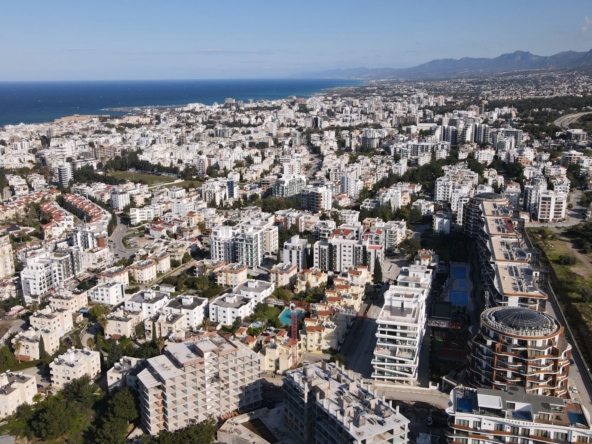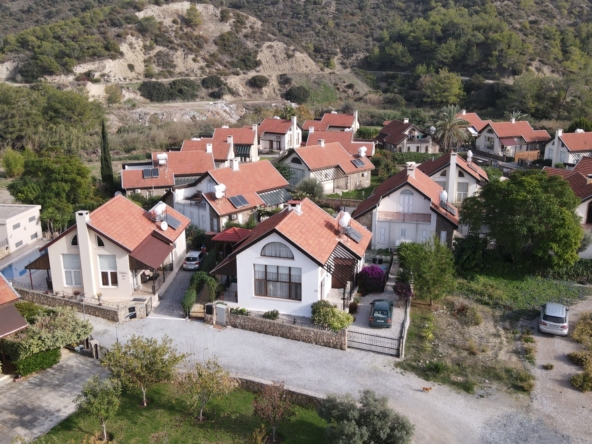Are you considering investing in real estate in Northern Cyprus? This beautiful Mediterranean island has been attracting more and more investors over the past few years due to its affordable prices, gorgeous weather, and stunning landscapes. However, before you take the plunge and invest your hard-earned money, it is essential to know about the taxes and regulations that apply to real estate investments in Northern Cyprus. In this article, we will provide you with a comprehensive guide to the taxes and regulations that affect real estate investments in Northern Cyprus.
Table of Contents
- Introduction
- Property Ownership Regulations in Northern Cyprus
- Taxation on Real Estate Investments in Northern Cyprus
- Income Tax on Rental Income
- Capital Gains Tax
- Property Tax
- VAT on Real Estate Transactions
- The Role of Real Estate Agents and Lawyers in Northern Cyprus
- Conclusion
- FAQs
1. Introduction
Northern Cyprus, also known as the Turkish Republic of Northern Cyprus, is an unrecognised state located in the northern part of the island of Cyprus. Despite its political status, the northern part of Cyprus has been attracting more and more investors in recent years, thanks to its affordable real estate prices, beautiful weather, and stunning landscapes. However, investing in real estate in Northern Cyprus is not without its challenges, and understanding the local regulations and taxation laws is essential to make an informed decision.
2. Property Ownership Regulations in Northern Cyprus
Before investing in real estate in Northern Cyprus, it is important to understand the regulations surrounding property ownership. Foreigners can own property in Northern Cyprus, but there are some restrictions. According to the Immovable Property Sales (Foreigners) Law of 2003, non-Cypriot citizens can purchase up to one donum (approximately 1338 square meters) of land or one property without the need for permission from the Council of Ministers. Any further purchases require approval from the Council of Ministers.
It is also worth noting that there are some areas in Northern Cyprus that are subject to military zones, and purchasing property in these areas is prohibited.
3. Taxation on Real Estate Investments in Northern Cyprus
Investing in real estate in Northern Cyprus is subject to several taxes. Here are some of the most important ones to keep in mind:
– Income Tax on Rental Income
If you plan on renting out your property in Northern Cyprus, you will be subject to income tax on the rental income you receive. The income tax rate varies depending on the amount of rental income you earn, ranging from 20% to 35%.
– Capital Gains Tax
When you sell your property in Northern Cyprus, you will be subject to capital gains tax. The tax rate is currently 3%, but this may change depending on the property’s value and the length of time you have owned it.
– Property Tax
Property tax is levied annually on all properties in Northern Cyprus. The tax rate varies depending on the value of the property and ranges from 0.1% to 0.6% per annum.
– VAT on Real Estate Transactions
VAT (Value Added Tax) is levied on all real estate transactions in Northern Cyprus. The VAT rate is currently 5%, but this may change depending on the property’s value and the type of property you are purchasing.
4. The Role of Real Estate Agents and Lawyers in Northern Cyprus
Investing in real estate in Northern Cyprus can be complex, and it is recommended to seek the services of a reputable real estate agent and lawyer. A good real estate agent can help you find the right property and guide you through the buying process, while a lawyer can help you navigate the legal aspects of the transaction and ensure that you comply with all the relevant regulations and tax laws.
A reputable real estate agent can provide you with a list of properties that meet your requirements and budget. They can also help you negotiate the terms of the purchase and provide you with valuable information about the property’s condition, location, and potential rental income.
A lawyer can review the contract of sale and ensure that all legal aspects of the transaction are in order. They can also help you obtain the necessary permits and approvals from the relevant authorities, such as the Council of Ministers.
5. Conclusion
Investing in real estate in Northern Cyprus can be a profitable venture, but it is essential to understand the regulations and tax laws that apply to such investments. Property ownership regulations and taxes on rental income, capital gains, property, and VAT are important factors to consider before making an investment decision.
Working with reputable real estate agents and lawyers can help you navigate the legal and practical aspects of real estate investments in Northern Cyprus. A well-informed and well-planned investment can bring you significant returns in the long term.
6. FAQs
- Can foreigners own property in Northern Cyprus? Yes, foreigners can own property in Northern Cyprus, but there are some restrictions on the amount of land or property they can purchase without approval from the Council of Ministers.
- What is the income tax rate on rental income in Northern Cyprus? The income tax rate on rental income in Northern Cyprus ranges from 20% to 35%, depending on the amount of rental income earned.
- What is the current capital gains tax rate in Northern Cyprus? The current capital gains tax rate in Northern Cyprus is 3%, but it may vary depending on the property’s value and the length of time it was owned.
- What is the property tax rate in Northern Cyprus? The property tax rate in Northern Cyprus varies depending on the property’s value and ranges from 0.1% to 0.6% per annum.
- Is VAT levied on real estate transactions in Northern Cyprus? Yes, VAT is levied on all real estate transactions in Northern Cyprus, with a current rate of 5%, but this may change depending on the property’s value and type.




